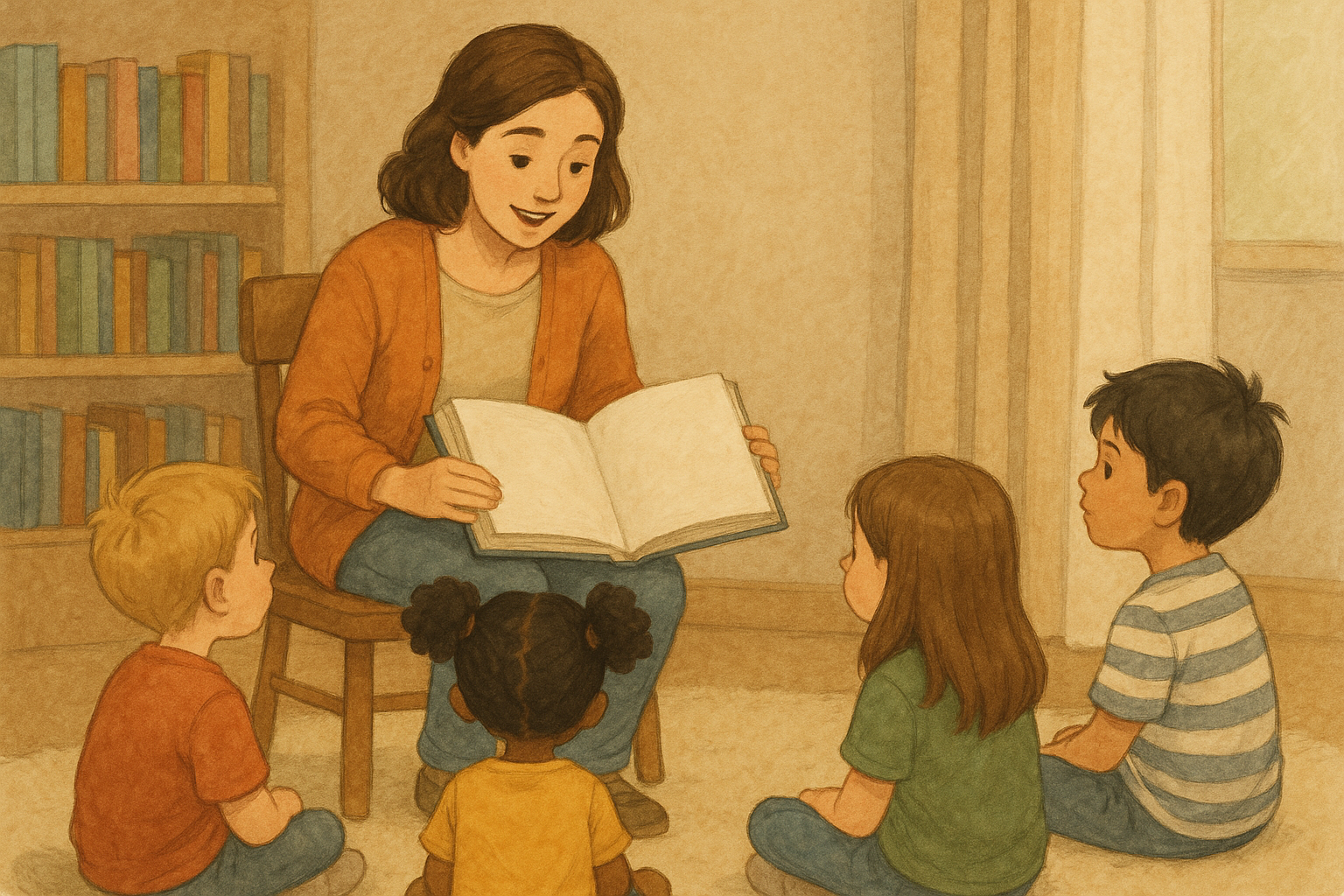Bilingualism in children: a superpower for the brain

Once seen simply as a practical asset, bilingualism is now recognized as a real gift for the brain. Research in neuroscience and cognitive psychology reveals that speaking two (or more) languages profoundly influences the way we think, learn and interact with the world.
But how does bilingualism affect the brain? And why is it so beneficial from early childhood?
1. Bilingualism, a daily workout for the brain
Every day, the bilingual brain juggles two language systems. This constant back-and-forth becomes a form ofmental exercise that enhances working memory, concentration and cognitive flexibility.
This article, published by Radio-Canada in 2024, shares the findings of Sally Sade's research into the cognitive skills of bilingual children aged 3 to 5. Indeed, her results showed that"bilingual children performed better in social play and emotional control, and scored higher on tests measuring executive functions overall. "(Sade S., Radio-Canada, 2024)
In children, this mental gymnastics starts very early: switching from one language to another fosters curiosity, confidence and creativity.
2. A more resilient brain over time
One of the most fascinating aspects of bilingualism is its natural protection against cognitive aging.
According to a study on the effects of bilingualism on the emergence of Alzheimer's symptoms, Mario F. Mendez et al, report that bilingual people delay or can compensate for the onset of dementia or Alzheimer's symptoms. In other words, their brains stay active longer.
Why is this? Because speaking two languages maintains cerebral plasticity, the brain's capacity to create and strengthen new neuronal connections. Like a muscle that's kept in motion, the bilingual brain stays sharp and resilient.
3. Visible changes in brain structure
Thanks to advances in neuroimaging, scientists have discovered that bilingualism not only transforms behavior or the way the brain works, but also its physical structure.
A study published in 2017 in Developmental Science revealed that certain areas of the brain, notably the prefrontal cortex , involved in managing complex tasks, are more developed in bilinguals. These regions contain more grey matter, which improves concentration and learning capacity.
4. Better concentration and distraction management
When a bilingual child expresses himself in French, his brain must automatically inhibit the other language (English, for example). This constant challenge sharpens their ability to concentrate and ignore distractions.
In a meta-analysis of 147 studies,Yurtsever et al (2023 ) found that bilingual children perform better on tests of concentration, working memory, task switching and inhibition control. They learn to filter out the essential and stay present, a valuable skill both at school and in everyday life.
5. Bilingualism from early childhood: an emotional and social asset
From their earliest years, children exposed to two languages develop a great openness to the world.
An article by Rong Huang (2023) shows that bilingual children acquire theory of mind - the ability to understand that others may think differently - earlier than their monolingual peers. This cognitive empathy enables them to cooperate better, to listen, and to adapt to varied environments.
At Jardin William, we see it every day: a simple exchange between two languages becomes a bridge between cultures, emotions and ways of thinking.
6. The little challenges of bilingualism
Studies show that it can sometimes take a bilingual child a little longer to find the right word in a given language. This is called lexical cost.
But this slight lag is nothing to worry about: it's simply the result of the linguistic richness in which the brain evolves. The long-term benefits? Mental agility, cultural openness and empathy, which, in my opinion, far outweigh them all!
In conclusion: two languages, a thousand possibilities
Bilingualism is much more than language learning. It's a way of life that shapes the brain, stimulates curiosity and encourages living together. In a bilingual city like Montreal, teaching bilingualism to children equips them to navigate comfortably in the future in both languages.
Through play, discovery and a love of words, the children attending Jardin William develop this superpower every day: that of thinking, understanding and dreaming in two languages :).
Sources :
- Héloïse rodriguez, 2024, Radio-Canada, https://ici.radio-canada.ca/rci/fr/nouvelle/2104337/bilinguisme-anglais-francais-cognitif#:~:text=L'%C3%A9tudiante%20au%20doctorat%20Sally,tests%20que%20les%20enfants%20unilingues.&text=Elle%20a%20effu%C3%A9%20des%20tests,fonction%20ex%C3%A9cutive%20%2C%20d%C3%A9taille%20la%20doctorante.
- Mendez, M. F., Chavez, D., & Akhlaghipour, G. (2019). Bilingualism Delays Expression of Alzheimer's Clinical Syndrome. dementia and geriatric cognitive disorders, 48(5-6), 281-289. https://doi.org/10.1159/000505872
- Arredondo, M. M., Hu, X. S., Satterfield, T., & Kovelman, I. (2017). Bilingualism alters children's frontal lobe functioning for attentional control. developmental science, 20(3), 10.1111/desc.12377. https://doi.org/10.1111/desc.12377
- Asli Yurtsever, John A.E. Anderson, John G. Grundy, Bilingual children outperform monolingual children on executive function tasks far more often than chance: An updated quantitative analysis, Developmental Review, Volume 69, 2023, 101084, ISSN 0273-2297, https://doi.org/10.1016/j.dr.2023.101084.
- Rong Huang, Erin Ruth Baker, Tianlin Wang, Early bilingualism enhances theory of mind in children from low-income households via executive function skills, Cognitive Development, Volume 68, 2023, 101389, ISSN 0885-2014, https://doi.org/10.1016/j.cogdev.2023.101389.


